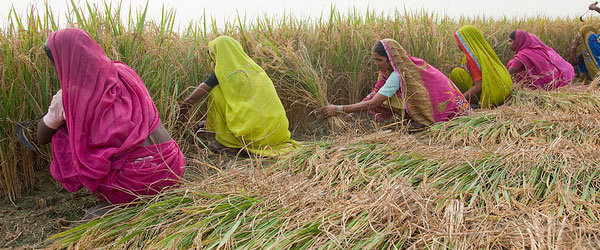India

Photo credit: © Bill & Melinda Gates Foundation
COUNTRY CONTEXT
India has seen unprecedented economic growth rates in recent decades and yet it remains home to one third of the world’s undernourished children. Levels of child stunting (chronic undernutrition) are unacceptably high at 39 percent nationally (RSOC 2013-14) and up to 57 percent in rural areas of some Indian states. Stunting in the first two years of life leads to irreversible damage, causes increased susceptibility to disease and can lead to death.
There have been many studies researching the pathways through which agriculture may improve nutritional outcomes. Although agriculture has the potential to be a strong driver of undernutrition reduction, its potential to do so is currently not being realised. The focus of agriculture in India has largely been on increasing productivity and production of cereals, especially wheat and rice, starting with the ‘Green Revolution’ in the late 1960s. It is only in recent years that some strategies are emerging to address nutrition through agricultural routes, for example the Nutri-Farm scheme announced by the government in 2013 (Nutrifarm guidelines).
There are agriculture policies, programmes and schemes at the national level with budgetary allocations, but agriculture is a state subject in the country. This gives states the scope to be proactive and take initiatives in response to state-level requirements.
WHAT IS LANSA?
Leveraging Agriculture for Nutrition in South Asia (LANSA) is a programme of research which aims to generate evidence that, with practical application, can improve nutrition outcomes in India, Bangladesh, Pakistan and Afghanistan. The research under LANSA will explore the fundamental, underlying and immediate determinants of nutrition.
LANSA RESEARCH IN INDIA
The majority of the research in India is led by the MS Swaminathan Research Foundation (MSSRF), the lead organisation for the LANSA programme. The integrated package of work includes studies on understanding the barriers and facilitators to nutrition-sensitive agricultural development in the country, analysing a few agri-food value chains and exploring how agricultural interventions can be designed to improve nutritional outcomes.







